Free Septic System Inspection ($99 VALUE)
WE DO NOT ONLY PUMP YOUR TANK - WE CLEAN IT! Free Septic System Inspection($99 VALUE) Free enzyme treatment! Financing Available
Free Septic System Inspection ($99 VALUE)
WE DO NOT ONLY PUMP YOUR TANK - WE CLEAN IT! Free Septic System Inspection($99 VALUE) Free enzyme treatment! Financing Available
When we flush our toilets or wash our dishes, most of us don't think about where the waste goes. The procedure is more intricate for homes that are equipped with septic systems than it is to simply send it to a sewage treatment plant. From the pumping of septic tanks to the final treatment in leach fields, this voyage entails a series of critical steps.
In this blog post, our professionals from Septic Blue of Raleigh will delve into how waste is managed in septic systems, with a particular focus on the role of leach fields.
Septic systems are a common solution for homes not connected to municipal sewage lines. These systems utilize a combination of mechanical and natural processes to treat effluent on-site. The septic tank is the central component of this system, as it is responsible for the storage and partial treatment of waste before it is transferred to subsequent phases of treatment.
The septic tank is essential for the efficient management of household waste. Solids (sludge) settle at the bottom of the tank, oils and grease (scum) float to the top, and liquid (effluent) occupies the intermediate layer. Waste is separated into three layers upon entering the tank. Over time, the solids accumulate and require a periodic septic tank pumping by a professional company. This procedure guarantees that the tank functions effectively and prevents system failure or overflow.
The system's longevity is contingent upon the regular maintenance of the septic tank, which encompasses pumping, cleaning, and inspection. A septic tank that is neglected can result in a variety of problems, including blockages, unpleasant aromas, and even costly repairs. By employing a reputable septic company for routine inspections and maintenance, you can prevent these issues and ensure that your system operates efficiently.
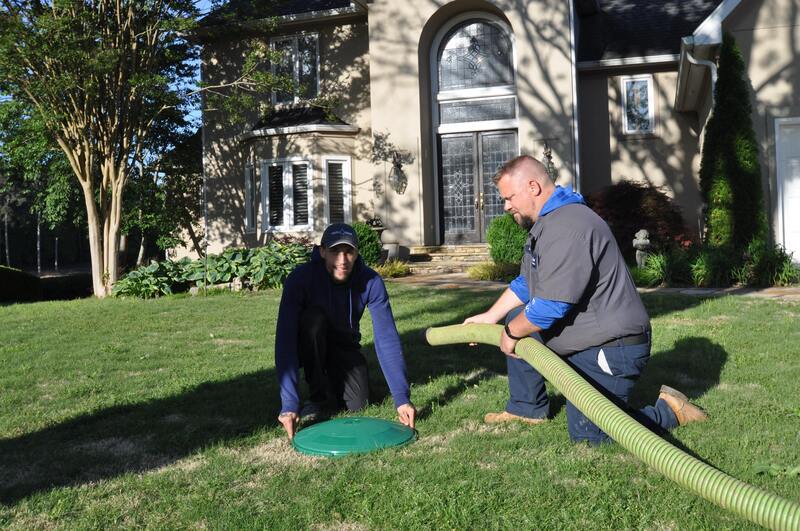
Septic tank pumping in Raleigh has never been so affordable and accessible thanks to the professionals at Septic Blue. We are…
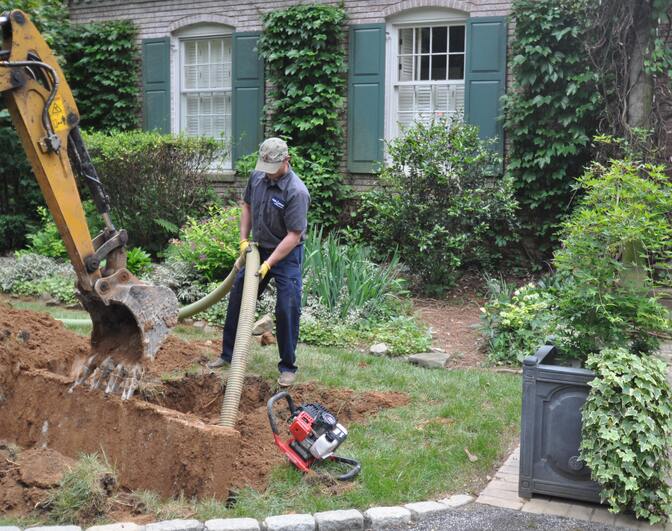
One quarter of Americans rely on septic tanks to process household waste. Most Septic Blue locations have septic tank experts who…
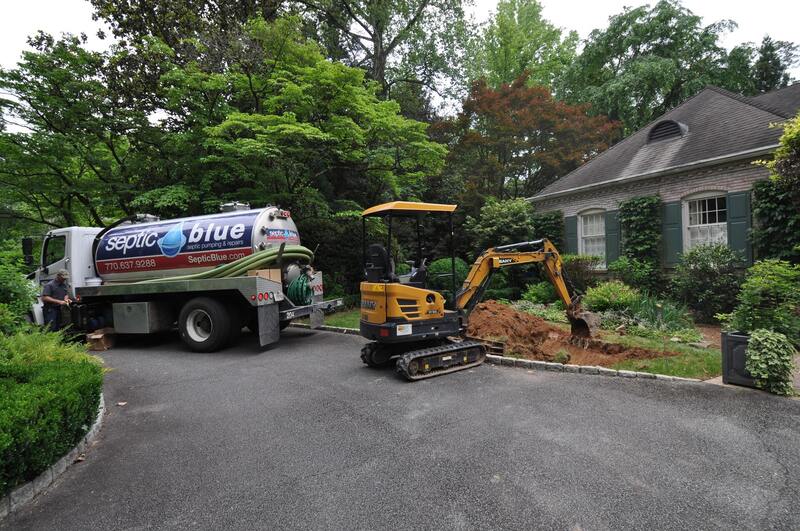
Call Septic Blue today for a second opinion. If you choose to go with Septic Blue, youll receive $250 off your…
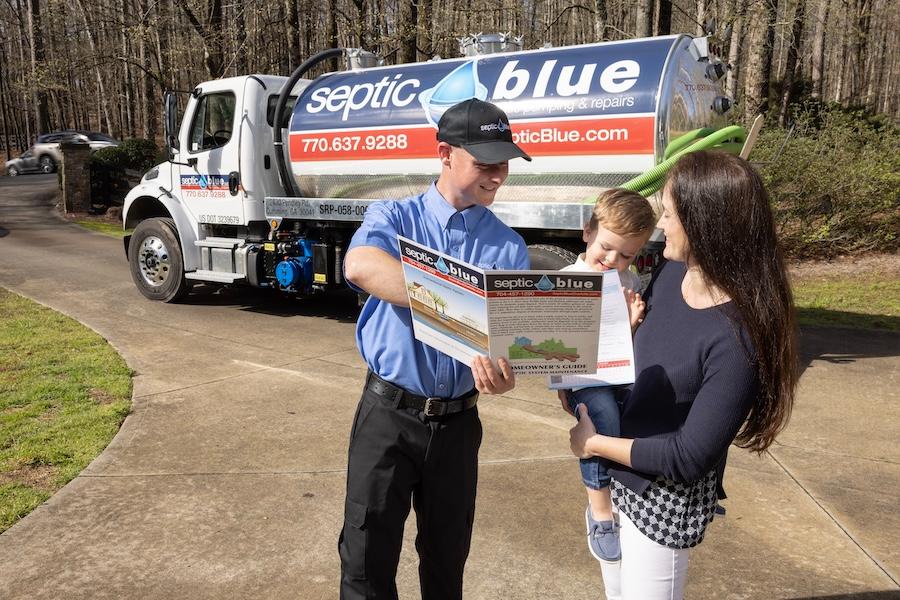
If you are a homeowner or resident in Raleigh that is among the 20 percent of households in the U.S. with…
Professional Saptic Plumbing solutions for every need. Contact Us Today!
Once the effluent exits the septic tank, it is directed to the drain field, which is also referred to as the leach field. This is the location where the genuine alchemy of natural wastewater treatment occurs. The leach field consists of a network of perforated pipes buried in gravel-filled trenches. The effluent is subjected to additional treatment and filtration as it percolates through the pipelines and into the surrounding soil.
How Leach Fields Work
Leach fields are designed to handle and treat the liquid waste effectively. Bacteria in the soil naturally decompose any residual organic matter as the effluent percolates through the soil. This biological process guarantees that wastewater is purified and hazardous pathogens are neutralized prior to their entry into the groundwater. The prevention of groundwater contamination and the protection of public health are reliant upon the proper functioning of leach fields.
Although leach fields are intended to endure for an extended period, they may experience complications that necessitate attention. Soggy patches in the yard, foul aromas, slow-draining fixtures, and sewage backups in the house are all common indicators of leach field issues. If you notice any of these issues, it's essential to contact a septic service for an inspection and potential septic tank repair.
The process of installing a septic system is intricate and necessitates meticulous planning and design. In order to guarantee that the system is appropriately sized and situated, a professional septic company will evaluate a variety of factors, including the size of the property, the type of soil, and local regulations. The efficiency and longevity of the system are contingent upon the proper installation of the septic tank and the design of the leach field. Proper maintenance can ensure that a system that is well-designed can provide dependable service for decades.
Are you in need of a septic tank cleaning? Luckily, we at Septic Blue of Raleigh have dedicated workers ready at your service. Contact our representatives for more questions.
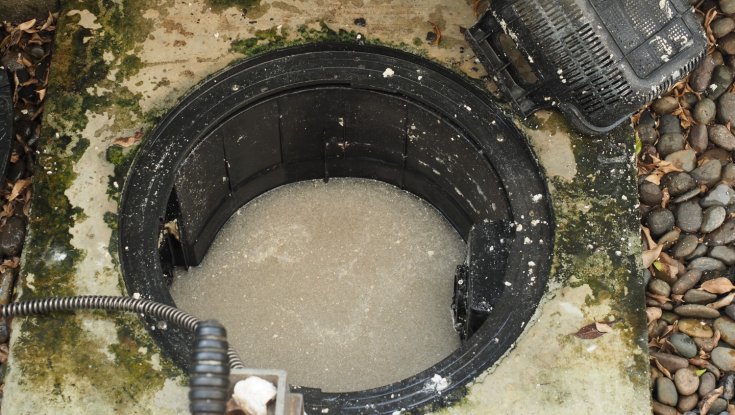
Grease traps play a critical role in managing waste in commercial kitchens, restaurants, and other food-service establishments. These systems are designed…
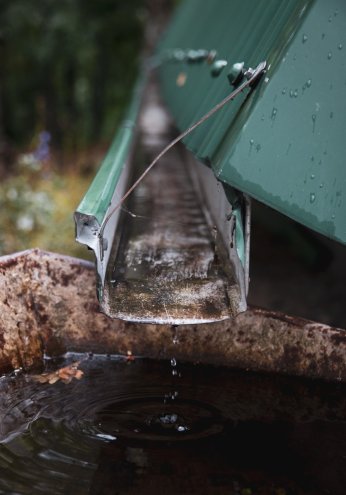
When you think of a septic system, the first things that probably come to mind are the septic tank and maybe…
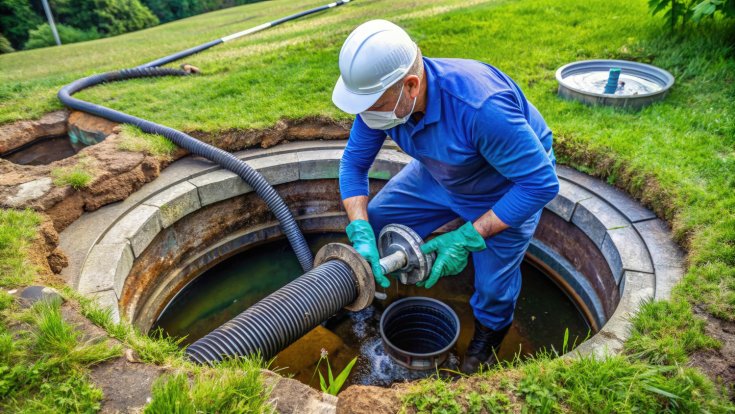
Do you have an on-site wastewater treatment system? How much do you know about your septic unit? As a homeowner, understanding…
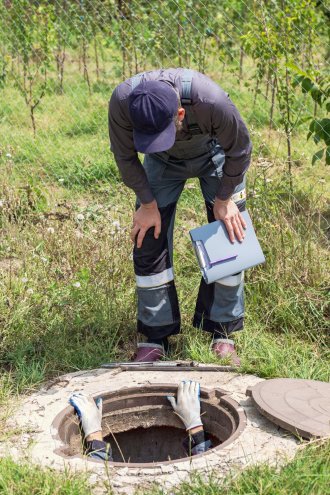
Ever hear a weird glug-glug sound coming from your toilet or drain? It's not just random noise. It could be your…